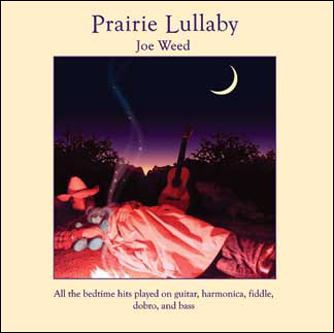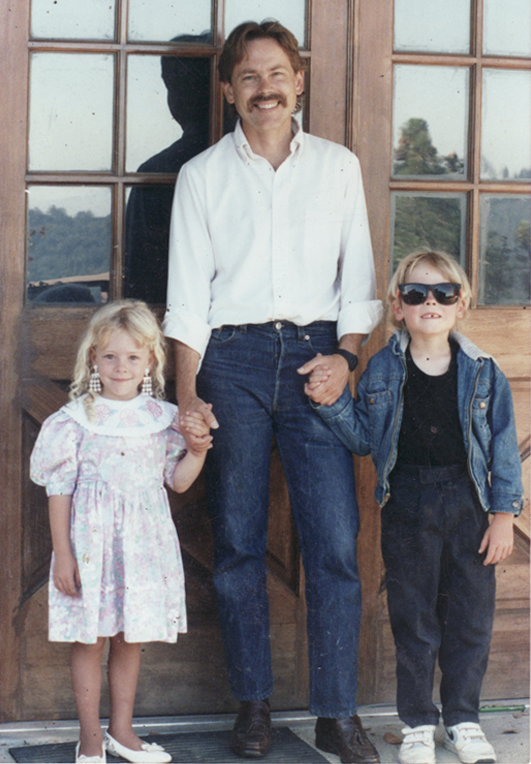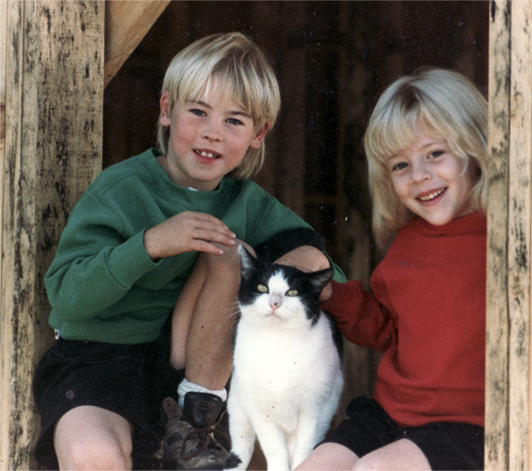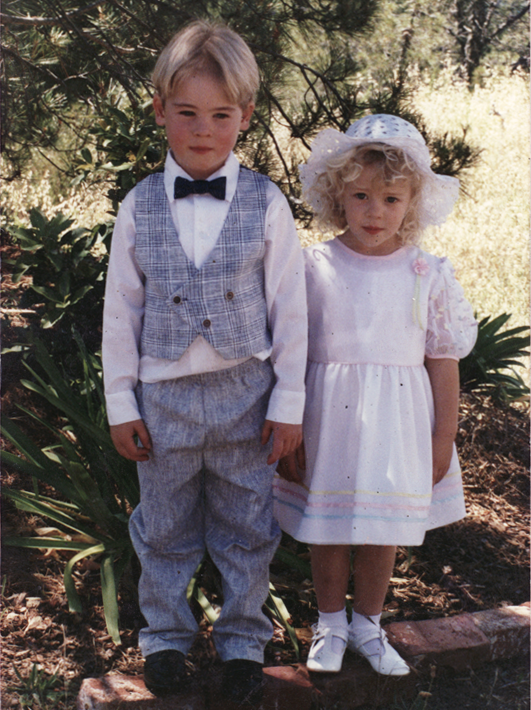Prairie Lullaby
Produced by Joe WeedBack to RecordingsWhen I began planning these recordings and researching authorship, publication and copyright information for the tunes, I thought most of them were written by three of my favorite composers: Trad, Anon, and Circa. They seem to spring from that great body of American folk tradition, and possess a certain enchanting quality which makes them beguiling lullabies. Many were passed along to us in the oral tradition by our mothers, who got them from their mothers, who got them from theirs, etc.
However, I learned that many of them do have well-documented histories. Joe Hickerson of the Archive of Folk Culture at the Library of Congress was very helpful in digging out information, as were Tim Lloyd and other staff of the American Folklife Center of the Library of Congress.
Much information can be found conveniently in a book, now out of print but available in many libraries, The Book of World Famous Music, Fifth edition, 2000, by James J. Fuld, published by Dover. Much of the information presented below comes from that source. The Penguin Book of American Folk Songs, compiled and edited with notes by Alan Lomax (first published in 1964 by Penguin Books) has transcriptions of over 100 tunes and information about them.
Note to music historians:
The liner notes which appear below and on the web page for the companion CD, "Prairie Christmas," reflect my awakening interest in learning about the origins of our folk music as I produced these albums in the early 1990's. Since then, I have devoted much time to learning about our rich vernacular music traditions, and have undertaken several research projects in the field. In 2002, I joined the Society for American Music, and have attended their annual conferences since 2003. The notes below were written in 1993, and were edited to make minor changes after Dover published a fifth edition of James Fuld's Book of World Famous Music in 2000.

|
1. Home on the Range (3:32) |

|
2. Grandfather’s Clock (2:44) |

|
3. Red River Valley (3:40) |

|
4. I've been Working on the Railroad (3:30) |

|
5. Twinkle Twinkle Little Star (2:43) |

|
6. Down in the Valley (3:25) |

|
7. Brahm’s Lullaby (2:36) |

|
8. My Bonnie Lies Over the Ocean (3:14) |

|
9. Old Folks at Home (3:32) |

|
10. Frére Jacques (2:26) |

|
11.1 Streets of Laredo (3:23) |

|
11.2 Cattle Call Waltz (3:23) |

|
12. Oh, Susannah (3:00) |

|
13. Rockabye Baby (3:11) |

|
14. Shenandoah (3:04) |
All compositions public domain
Copyright © 1993 by Joe Weed, All Rights Reserved
What they're saying...
"What the cover proclaims: "All the bedtime hits lovingly played on guitar, harmonica, fiddle and dobro"- just about says it. Having triumphed in many actual field tests, this charming instrumental collection is a simple and melodic enough to do that essential nighty-night job.
Yet, by once again engaging an all star cast including Norton Buffalo, Todd Phillips, Bryan Bowers and Rob Ickes, whose adroit playing within the inventive, subtle arrangements truly shines, Weed keeps serious listeners and players-- even dedicated non-kid types-- beguiled by the chestnuts to the last track." - Paul Hostetter
"Prairie Lullaby is a wonderful collection of relaxing but decidedly not soporific instrumental versions of old familiar songs. The surprising use of harmonica played by the redoubtable Norton Buffalo blends with the ever tasteful guitar and mandolin of Joe Weed to make for 45 minutes of aural delight. Rob Ickes' dobro playing smoothly fills out the sonic palette. I like Prairie Lullaby quite a bit. I was really happy to see the notes with all the composers' credits and dates."
- Leigh Hill, KUSP FM, Santa Cruz, CA, host of The Pataphysical Farm
When I began planning these recordings and researching authorship, publication and copyright information for the tunes, I thought most of them were written by three of my favorite composers: Trad, Anon, and Circa. They seem to spring from that great body of American folk tradition, and possess a certain enchanting quality which makes them beguiling lullabies. Many were passed along to us in the oral tradition by our mothers, who got them from their mothers, who got them from theirs, etc.
However, I learned that many of them do have well-documented histories. Joe Hickerson of the Archive of Folk Culture at the Library of Congress was very helpful in digging out information, as were Tim Lloyd and other staff of the American Folklife Center of the Library of Congress.
Much information can be found conveniently in a book, now out of print but available in many libraries, The Book of World Famous Music, Fifth edition, 2000, by James J. Fuld, published by Dover. Much of the information presented below comes from that source. The Penguin Book of American Folk Songs, compiled and edited with notes by Alan Lomax (first published in 1964 by Penguin Books) has transcriptions of over 100 tunes and information about them.
Note to music historians:
The liner notes which appear below and on the web page for the companion CD, "Prairie Christmas," reflect my awakening interest in learning about the origins of our folk music as I produced these albums in the early 1990's. Since then, I have devoted much time to learning about our rich vernacular music traditions, and have undertaken several research projects in the field. In 2002, I joined the Society for American Music, and have attended their annual conferences since 2003. The notes below were written in 1993, and were edited to make minor changes after Dover published a fifth edition of James Fuld's Book of World Famous Music in 2000.
Liner Notes-
Home on the Range (3:32)
Now the official Kansas State Song, this tune was written in 1872 or 1873. The music was composed by Daniel E. Kelley, a musician and entertainer from Rhode Island, and the words were penned by Brewster M. Higley, a pioneer doctor from Ohio. This beautiful piece has long been one of my favorites, and we frequently play it late at night as a picking party nears its inevitable end. Look up the words some time, especially verse three. -
Grandfather’s Clock (2:44)
Henry Clay Work, a 19th Century American song writer, wrote this engaging piece after being inspired by a clock in the George Hotel in Piercebridge, Yorkshire, England. The words tell of the old clock which was so big it had to sit on the floor. It worked flawlessly until “the day the old man died,” whereupon it shut down for good. I think I hear it break after the last chorus. -
Red River Valley (3:40)
Apparently, this tune has been well-loved and often published throughout the 19th and 20th Centuries. Various titles have been In the Bright Mohawk Valley, In the Bright Sherman Valley, and In the Bright Little Valley. Many versions and variants are found in the oral tradition, and the tune appears in Carl Sandberg’s American Songbag. When I first heard Norton play it on harmonica in the studio, I knew that he had to have the opening melody. -
I’ve Been Working on the Railroad (3:30)
In his Book of World Famous Music, James Fuld writes that the tune first appeared in print under the title The Levee Song, in 1894. The Eyes of Texas (Are Upon You) was written to the same melody and published in Austin, Texas, in 1918 (the same year my parents were born.) Its title paraphrases General Robert E. Lee, who told pupils at Washington College, “... The eyes of the South are upon you.” -
Twinkle Twinkle Little Star (2:43)
The melody of this perennial favorite was published in Paris in 1761. In 1778 Mozart wrote his 12 piano variations of it, and in less than twenty years it topped the hit parade in the brand new United States! The Twinkle Twinkle words were written by Jane Taylor, an Englishwoman, and it appears that the first time this melody and her words were printed together was in The Singing Master III, published in London in 1838.
The alphabet song, to the same melody, was copyrighted in Boston in 1834 as The Schoolmaster. Fuld writes that Baa Baa Black Sheep was published with the same melody in Philadelphia in 1879. -
Down in the Valley (3:25)
When playing this tune for the kids at bed time, it didn't matter that the verses and choruses had the exact same melody. Repetition and monotony are, after all, an important part of the game when the goal is to have kids peacefully asleep. However, I decided that a little change in the harmony between verses and choruses would make this tune work better on an instrumental recording. As with Red River Valley, this piece has been frequently published, and appears in Sandberg's American Songbag. -
Brahm’s Lullaby (2:36)
Johannes Brahms (1833-1897), the brilliant German composer, left us this simple, comforting melody which would immediately put my children into a mellow mood, and sometimes even instill an unbelievable acceptance of the approaching “lights out.” Honest. -
My Bonnie Lies Over the Ocean (3:14)
My Bonnie (with shortened title) first appeared in print in 1881 as a student song at Cambridge. My father taught me some goofy words to it which he learned as a boy, and which usually occur to me well ahead of the real ones when this tune haunts me. -
Old Folks at Home (3:32)
My mother used to sing this beautiful song by Stephen Foster, and it has remained one of my favorites. Foster’s publisher listed the composer as E.P. Christy in the first (1851) and early editions, after Foster made a deal with Christy. Long after Foster’s death, his brother Morrison worked hard to restore Foster’s name to its rightful place as writer and composer. In A Treasury of Stephen Foster, (Random House, 1946) John Tasker Howard tells how Foster and his brother Morrison picked the name of the Swanee River from an atlas, not being satisfied with the sound of the Yazoo or Pedee River names they had tried earlier. -
Frére Jacques (2:26)
Fuld’s book informs us that Frère Jacques first appeared with words and music in 1860 in Paris, and that the melody alone was first printed in 1811.
When she was four, my daughter Katie learned a Spanish language version of this tune entitled La Lechusa from an Argentinian teacher in pre-school. Mon Dieu! y ¡Dios mío! -
Streets of Laredo / Cattle Call (3:23)
The Streets of Laredo apparently is one of the most common folk melodies in the British Isles, and has had many titles, including The Soldier (or Sailor) Cut Down in His Prime, and The Unfortunate Rake.
Cattle Call was made popular in 1955 by Eddie Arnold, the much-loved country/popular singer. It was first copyrighted in 1934 by Tex Owen, who added words to it and then recorded it for Decca. The melody appears on a 1928 recording made in Chicago by Polish-American Bruno Rudzinski, who called it “Pavel’s Walç” and scat-sang it. Root and Cady, publishers in Chicago, copyrighted and published St. Paul’s Waltz by A. J. Vaas in 1864. -
Oh, Susannah (3:00)
According to John Tasker Howard in A Treasury of Stephen Foster, this tune netted W.C. Peters at least $10,000 after Stephen Foster either gave it or sold it to him for $100. Peters copyrighted Oh, Susanna (originally entitled Susanna) in 1848, and was quickly followed by many other publishers, none of whom paid Foster. It soon became the theme song for the 1849 gold rush in California. -
Rockabye Baby (3:11)
The melody of this lullaby was probably written about 1872 (Fuld), by Effie Crockett, who died in Boston in 1940. I remember my mother singing it, and I wondered if the baby gets hurt when it falls from the tree top. It was usually the last tune I played before my son, Jeff, and daughter, Katie, would drift off. -
Shenandoah ((3:04)
I learned this favorite in fourth grade at Metzler School in San Jose, California, when my teacher Mrs. Wilson played the piano and we sang along from songbooks. The staff at the Archive of Folk Culture told me that it appears in Music of the Waters, (London, 1888), and in an 1882 article in Harper’s New Monthly Magazine; and possible early versions were used as sea shanties or army tunes before the Civil War.
Dedicated to Jeffrey and Katie Kendall-Weed. Special thanks to Jeffrey and Katie for giving me the opportunity to develop these arrangements countless evenings sitting on their floor as they (and sometimes I) drifted off to where the skies are not cloudy all day...Also, to Marti for all the nights she sang them to sleep and all the days she wakes up with a smile; to my mother, Ruth Weed, for singing so many of these beautiful tunes to me and my siblings Mary, Katherine and Freddy; to Fred Weed Sr. for music around the house; to Myra Jones, for helping the little Kendall-Weeds get such a great start in life; to all the musicians and songwriters; to Dale and Marilyn Barcellos, and Scottie Salsbury and crew.
hidden

All the bedtime hits played on guitar, harmonica, fiddle, dobro and bass.
Featuring:
Joe Weed: guitars, mandolins, fiddle
Barbara Ann Barnett: accordion
Bryan Bowers: autoharp (Courtesy of Flying Fish Records)
Norton Buffalo: harmonica
Neal Hellman: autoharp
Rob Ickes: dobro
Marti Kendall: cello
Sid Knee: tenor banjo
Todd Phillips: bass

Katie, Jeff and Joe heading out to dinner with Marti, who took the photo
For additional copies or information on obtaining other recordings by Joe Weed, please contact
Highland Records
PO Box 554
Los Gatos, CA 95031-0554
joeweed.com

Jeff, Katie and cat ABC at Highland Studios, under construction
Published by Jozone Music, BMI -
a division of Highland Publishing Group
Recorded and Mixed to Digital at
Highland Studio, Los Gatos, CA
Cover Art: Dale Barcellos, Inhouse Design

Jeff and Katie, dressed for Aunt Katherine's wedding

